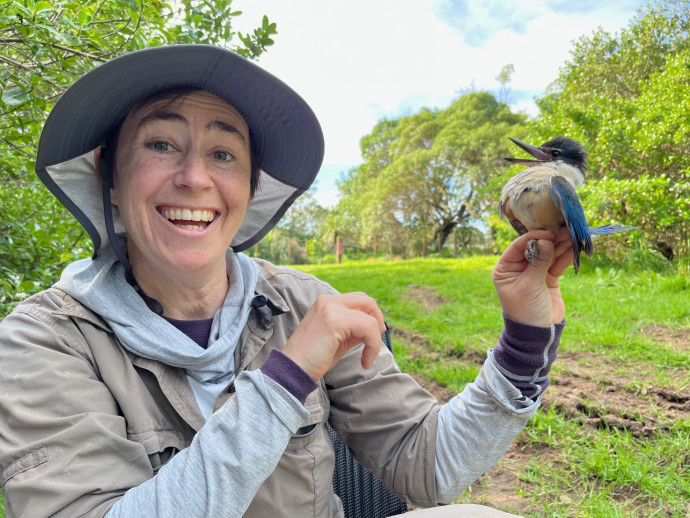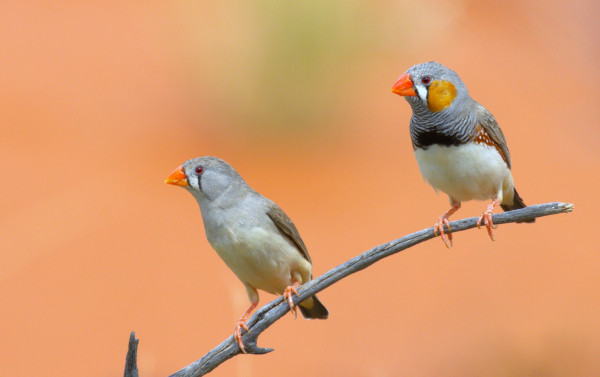Twinkle, twinkle, little star(ling): Are sleepy birds sloppy singers?

Sleep disturbance can impair our mood as well as our ability to learn – but can sleep disruption in our youth have longer-term consequences on learning and performance? Dr Kristal Cain from Waipapa Taumata Rau the University of Auckland will be using vocal learning in birds as a model to delve into this important topic
Published on 2 Whiringa-ā-rangi November 2023
Most of us have experienced some form of sleep disruption, and are all too familiar with the effect it has on our physical and mental state. Sleep-loss worsens our mood and increases stress, but it also impairs communication, memory, and learning. These effects are even more pronounced in tamariki; poor-quality sleep early in life hinders vocal learning, resulting in reduced language ability years later.
Songbirds represent a powerful potential model to study the connection between sleep and vocal learning more deeply. Few animals share our vocal abilities, but songbird brains contain specific regions for vocal learning that mirror our own, and juvenile songbirds go through distinct vocal learning stages similar to those observed in human babies.

A female and male zebra finch (photo credit: Robert Dugand)
Dr Cain has previously found that sleep deprivation impairs the vocal performance of adult songbirds, with implications for their ability to communicate or defend territories. However, it is unclear how sleep deprivation in young birds, at critical stages of cognitive development, impacts vocal learning and subsequent vocal performance as an adult. In this Marsden Fund Standard project, Cain and her team will use state-of-the-art technologies (tiny bird backpacks fitted with microphones) to explore how disrupting the sleep of young zebra finches impairs their vocal learning. Due to the short lifespan of this species, the effect of sleep disruption can be measured all the way into adulthood to see when it arises and how long it persists.
This will be one of the first studies to investigate whether –and how—sleep disruption early in life can affect vocal learning in animals. Perhaps this will help us to better understand the risks for our own tamariki when they don’t get a full night’s rest.
